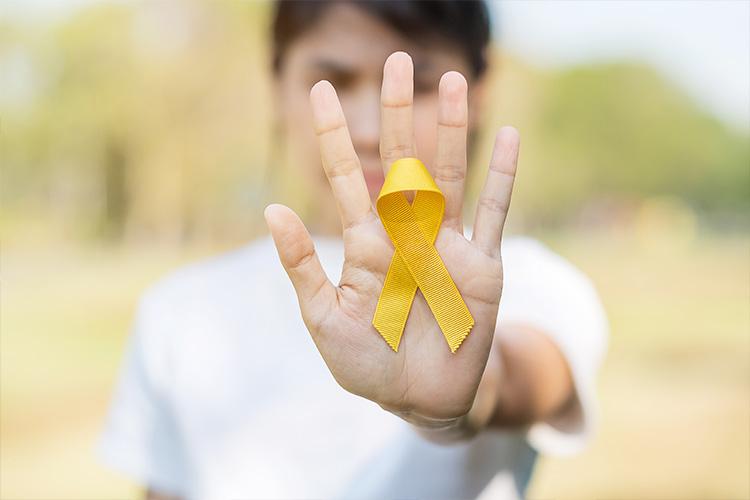Suicide is a profound and complex issue that affects individuals, families, and communities worldwide. It is a topic often shrouded in stigma and silence, yet it is essential to address openly and compassionately. Understanding the signs, offering support, and knowing how to seek help are critical steps in preventing suicide and saving lives.
Understanding Suicide: A Global Perspective
National Wellness Month is an annual event aimed at raising awareness about the importance of a balanced lifestyle and encouraging individuals to prioritize their health and well-being. The observance underscores the significance of adopting healthy habits and creating a supportive environment for personal growth and resilience (National Wellness Institute, 2021).
Suicide Prevention Week: Raising Awareness and Promoting Action
Suicide Prevention Week, observed annually in September, serves as a crucial platform for raising awareness about suicide and its prevention. The week aims to educate the public, reduce stigma, and encourage people to seek help and support. The goals of Suicide Prevention Week include:
- Increasing Awareness: Educating communities about the warning signs of suicide and available resources (National Suicide Prevention Lifeline, 2021).
- Encouraging Open Dialogue: Fostering conversations about mental health to break the stigma surrounding suicide (American Foundation for Suicide Prevention, 2021).
- Promoting Support Services: Highlighting the importance of professional help and support networks (National Alliance on Mental Illness, 2021).
Empowering Individuals: Providing tools and resources to help individuals take proactive steps towards mental wellness (Mental Health America, 2021).

Recognizing the Warning Signs
Recognizing the warning signs of suicidal thoughts and behaviors can be challenging but is crucial for early intervention. Some common indicators include:
- Talking About Death: Expressing a preoccupation with death or making statements about feeling hopeless or trapped (National Institute of Mental Health, 2021).
- Changes in Behavior: Significant changes in mood, withdrawal from social activities, or a noticeable decline in performance at work or school (American Psychological Association, 2021).
- Risky Behavior: Engaging in reckless activities or substance abuse (Substance Abuse and Mental Health Services Administration, 2021).
- Giving Away Belongings: Distributing personal items or saying goodbye in a manner that feels final (National Suicide Prevention Lifeline, 2021).
- Emotional Distress: Severe anxiety, depression, or a sense of overwhelming sadness (National Alliance on Mental Illness, 2021).
If you or someone you know exhibits these signs, it is essential to take them seriously and seek help immediately.
Offering Support: How to Help
Supporting someone who may be experiencing suicidal thoughts involves compassion, empathy, and practical assistance. Here are some ways to offer support:
- Listen Actively: Sometimes, the most valuable support you can provide is simply being present and listening without judgment. Allow the person to express their feelings and thoughts openly (American Foundation for Suicide Prevention, 2021).
- Encourage Professional Help: Gently suggest seeking help from a mental health professional. Therapy and counseling can provide valuable tools and support for managing mental health issues (National Institute of Mental Health, 2021).
- Stay Connected: Regular check-ins and maintaining contact can help the individual feel supported and less isolated (Mental Health America, 2021).
Create a Safety Plan: Help the person develop a safety plan that includes coping strategies and emergency contacts. This plan should outline steps to take if they feel overwhelmed or in crisis (Crisis Text Line, 2021).
Seeking Professional Help: Resources and Support
There are numerous resources available for individuals in crisis and those supporting them. Some key resources include:
- National Suicide Prevention Lifeline: Provides 24/7, free, and confidential support for people in distress. Call 988 or visit 988lifeline.org.
- Crisis Text Line: Offers 24/7 crisis support via text. Text “HELLO” to 741741 (Crisis Text Line, 2021).
Local Mental Health Services: Many communities have local organizations and hotlines dedicated to mental health support (National Alliance on Mental Illness, 2021).
Breaking the Stigma: Why It Matters
Stigma surrounding mental health and suicide can prevent individuals from seeking the help they need. By speaking openly about these issues, we can challenge misconceptions and foster an environment where people feel safe to seek support. Education and awareness, especially during Suicide Prevention Week, are powerful tools in preventing suicide and supporting mental health (American Foundation for Suicide Prevention, 2021).
Promoting Mental Health: Building Resilience
Preventing suicide involves promoting mental health and building resilience. Strategies include:
- Encouraging Open Conversations: Normalize discussions about mental health and emotional well-being (Mental Health America, 2021).
- Fostering Healthy Relationships: Support strong, positive connections with family and friends (National Alliance on Mental Illness, 2021).
Practicing Self-Care: Encourage activities that support mental and physical well-being, such as exercise, mindfulness, and healthy eating (American Psychological Association, 2021).
Conclusion: Together, We Can Make a Difference
Suicide prevention requires collective effort and understanding. By recognizing the signs, offering support, seeking professional help, and breaking the stigma, we can make a significant impact. Remember, every action counts, and reaching out can be the first step toward saving a life.
As Suicide Prevention Week approaches, let’s come together to raise awareness, support one another, and promote mental health. If you or someone you know is struggling, don’t hesitate to reach out for help. We are all part of this journey, and together, we can work towards a world where mental health is valued, and every life is cherished.
